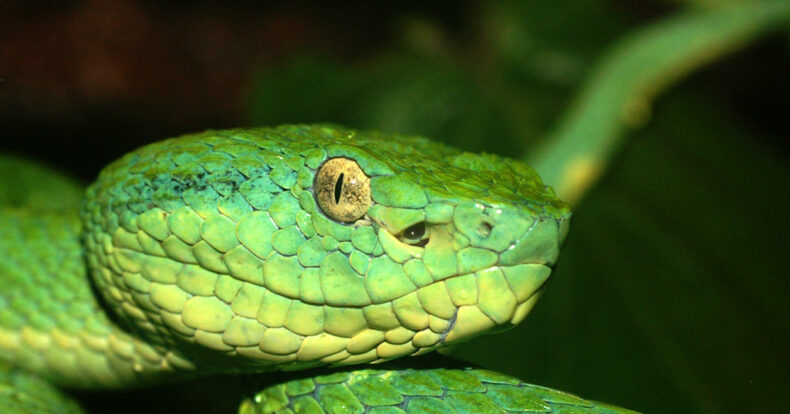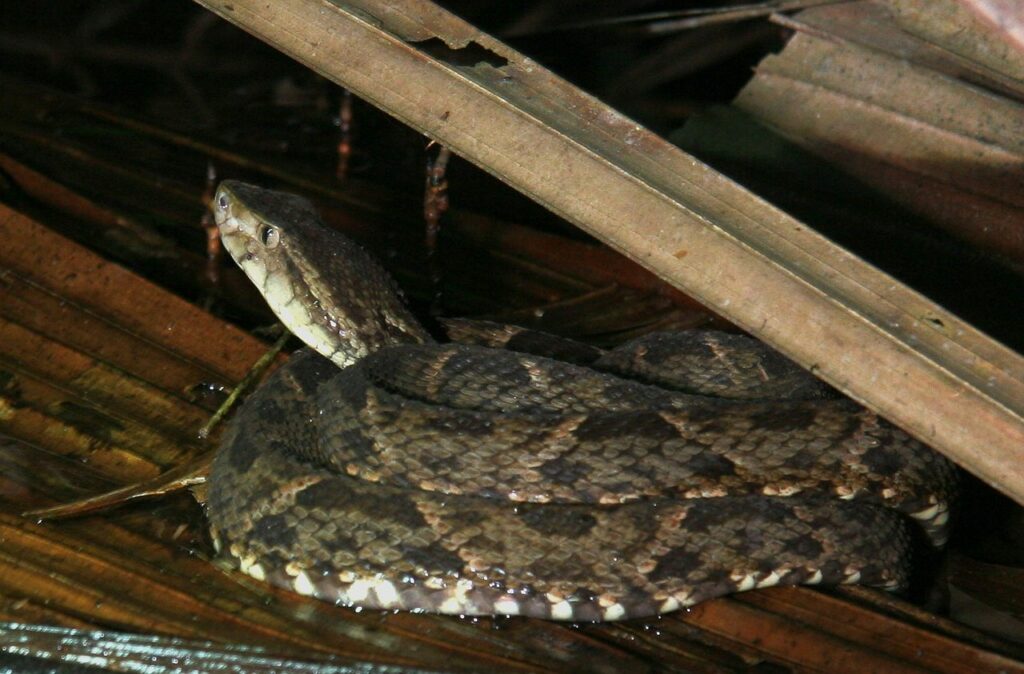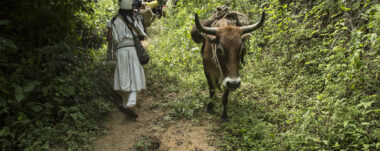Poisonous Snakes of Costa Rica

Although many people are afraid of snakes, only 15% of the total of the 23 species of snakes that exist in Costa Rica are venomous. These are some of the venomous snakes in Costa Rica:
The Coral snake
The coral snake can grow up to 1.15 m long and has a venom that can be very toxic to the nervous system. They are found mainly in coffee plantations and tall grasses. Despite having a venom that is toxic to the nervous system, cases of coral snake bites are quite rare. Indeed, it is a nocturnal animal, and generally avoids attacking people, knowing that they are too large to be considered as prey.
It is recognized by its colored rings arranged in this order: red, yellow, black and yellow. It is easily confused with another snake, nicknamed “false” coral snake, which is harmless. The rings of the latter are in a different order. To distinguish them one must remember the word RANA (“frog” in Spanish), initials of Red, Yellow (Amarillo), Black, Yellow. This is the order of the colors of the Coral snake.
Tropical Rattlesnake
The rattlesnake is usually found in the provinces of Guanacaste or Puntarenas because they like the drier climate. This snake is about 160 cm long and its skin has quite characteristic dark diamonds. Despite being very agile and venomous (it immobilizes its prey) it is very unlikely to come across one and the treatment against its venom is very effective. It has a corneum appendage that unfolds at the end of its tail, formed by up to 14 threaded segments that produce a characteristic sound when the snake shakes them.

The velvet or spearhead
The velvet snake is considered the most dangerous snake in Costa Rica, as it is everywhere since it reproduces very easily and is omnipresent. Among all venomous snakes, the velvet snake is the one that causes the highest number of bites in Costa Rica.
The Black-Headed Viper (or Bushmaster Snake)
Fortunately, these snakes are nocturnal and are rarely encountered. They have a very potent venom which makes them highly dangerous. Victims of snake bites have only a few hours before death or serious injury.
The Palm Snake
The palm viper lives inside palm fronds, in moist upland forests and coffee plantations. It is also known as “Lora venenosa”. This snake has a very striking emerald green color that allows it to camouflage itself with the vegetation. It is a very small snake, measuring only 80 cm.
Schlegel’s Viper
The Schlegel’s viper is characterized by its ridges over the eye and its striking coloration ranging from bright yellow to almost pink. Like all vipers, this one has a triangular head and vertical pupils.
Author: M. Barrantes for Sensorial Sunsets
References
https://es.wikipedia.org/wiki/Anexo:Serpientes_venenosas_de_Costa_Rica
Navigate articles




